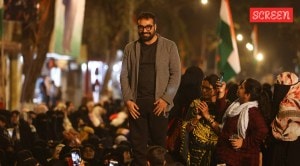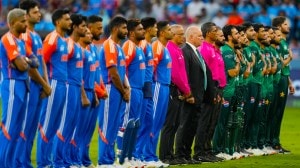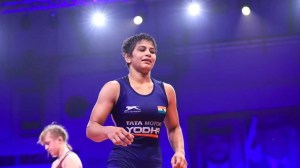President Kant, if they agree to agree
Vice President Krishan Kant, considered the outsider in the presidential sweepstakes, is emerging as the front-runner with a growing feeling...

Vice President Krishan Kant, considered the outsider in the presidential sweepstakes, is emerging as the front-runner with a growing feeling across the political spectrum that the next Rashtrapati should be selected by consensus.
In fact, there has been much divisiveness on display already making this perhaps the first time in recent years that three days before the official notification, the choice of candidates isn’t still known.
The Prime Minister discussed the issue this evening with three of his senior colleagues—Home Minister L K Advani, External Affairs Minister Jaswant Singh and Defence Minister George Fernandes—apprising them of his meeting with Chandrababu Naidu earlier in the day. Later, he telephoned Pramod Mahajan and asked him to join them.
What is weighing on the Prime Minister’s mind, said NDA sources, is that there should not be a contest for the post of the President giving the impression of a divided political establishment. So he’s expected to announce the name latest by Sunday, sources said.
While Vajpayee has been willing to back Kant, the only snag has been that the Shiv Sena and a section in the BJP have put their weight behind Maharashtra Governor P C Alexander. His name was first proposed by Mahajan and Bal Thackeray and the NDA adopted him.
The argument by a ginger group in the BJP family—which included T V R Shenoy and S Gurumurthy—was that Alexander had been ‘‘neutral’’ during his two terms as Governor and elevating a Christian to the highest office of the Republic might go down well in the West after September 11, and help undo some of the damage done by Gujarat.
Naidu, who is reported to be backing Kant, met the Prime Minister and the Home Minister over lunch today, and has left the decision to the Prime Minister, like other constituents of the NDA. Naidu made a case for consensus saying that a controversy should be avoided over the Republic’s highest post.
The Congress had not reacted favourably to Alexander’s name, even though he had been close to Indira Gandhi and Rajiv Gandhi. Congress leaders say that there is ‘‘a zero chance’’ of the party supporting him and this has been conveyed to the Prime Minister’s emissaries.
So the choice has narrowed down to two, Alexander if the NDA decides to contest and Kant if consensus wins in the end.
Indeed, there are indications from the Congress and the Left that if the NDA is not prepared to accept Narayanan for a second term, they might be prepared to accept Kant if there is a consensus on him.
The Samajwadi Party has also indicated as much and the call yesterday by the People’s Front for a consensus is being seen in BJP circles as a climbdown by the Left which had been pushing for Narayanan, even trying to persuade him to contest.
Officially, the Opposition parties are still waiting for a word from Narayanan, who is keeping his cards close to his chest on whether he will contest for a second term.
Most observers rule this out, but there has been no statement forthcoming from Narayanan to say he will not be throwing his hat in the ring. To be able to take the entire political opinion with him would be a feather in Vajpayee’s cap.
A contest is a risky proposition, because the arithmetic is too close for comfort, with the ruling combine accounting for 52% of the electoral college and the opposition for 48%.
A contest, and a close one at that, may also become a messy affair. Both sides would go down to the MLA level to try and win support and Chief Ministers of all hues would be called to break the ranks of the other side, and ‘‘persuade’’ MLAs on the opposite side to vote for their candidate.
There is no whip in a presidential election.
As V P Singh put it: ‘‘Lately we have been seeing the open use of money in winning over MPs and MLAs in various elections, God forbid that it should happen in the presidential poll, if there is a contest.’’
Singh advocates the convention of elevating the vice president to the post of the president, since the BJP had cited another convention of not allowing the incumbent president to seek a second term.
Photos




- 01
- 02
- 03
- 04
- 05



























